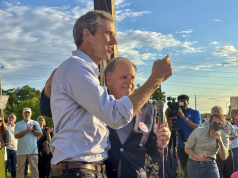By Glenn Ellis
All of the mixed messages about the impending COVID-19 vaccine that are raining from every level of government, makes knowing what is safe and how best to protect ourselves a matter of how you interpret what you are hearing. The misstatements; contradicting guidelines; and the retractions, make us dizzy. Who, and what, do we believe, so we know how to best protect ourselves, and our families?
Do you trust what you’re hearing? Do you even understand all this “scientific” stuff that is being spouted? Whether you decide to get one, once they become available or not, wouldn’t you like to make an informed decision? I’d like to offer a little insight on the promise of a COVID-19 vaccine that we need to know to be prepared.
Vaccines: The U.S. Food and Drug Administration (FDA) has made it clear that any vaccine that’s developed must be at least 50 percent effective against COVID-19 in order to be approved for the public. There are currently 321 vaccine candidates under research, with the hope of coming up with a COVID-19 vaccine. Of those, 33 vaccine candidates are actually in the clinical trial phase. Chief among the considerations, if there is a vaccine, is that it is safe and effective and a matter of how, where, and when the general public can get a vaccine.
Remember, we are still in a pandemic, so social distancing and other precautionary measures have to adhered to. The distribution of a vaccine to the public must be carried out in a safe way. There will definitely be a prioritization in terms of who gets a vaccine first. In short, be prepared for medical personnel, police, firefighters, and other front line/essential workers to go first. Logically, this will mean it could be as late as April 2021 before the rest of us have any access.
Kaiser Health News (KHN) reported on the challenges facing many local and state health departments across the country. They found that “health departments that have been underfunded for decades say they currently lack the staff, money and tools to educate people about vaccines and then to distribute, administer and track doses to some 330 million people.
Nor do they know when, or if, they’ll get federal aid to do that. This could be a real problem. Particularly when a poll from AP-NORC Center for Public Affairs Research shows that only half of all Americans say they will take the vaccine. If this vaccine campaign is going to be effective, better education of the public is a non-negotiable necessity.
Then, there’s the concept of herd immunity. The Mayo Clinic defines herd immunity as what happens when a large portion of a community (the herd) becomes immune to a disease, making the spread of disease from person to person unlikely. As a result, the whole community becomes protected – not just those who are immune. So far, approximately 1-2 percent of the U.S. population has antibodies form being exposed to the COVID-19 virus. Even if that number increased by 10 percent, that still would not be enough to reach the minimum of 50 percent of the population to stop the spread of the virus naturally. Bottom line – don’t bet on herd immunity as an alternative to getting a COVID-19 vaccine. There is little evidence to suggest that the spread of COVID-19 might stop naturally before at least 50 percent of the population has become immune.
There is also some question about whether a COIVD-19 vaccine will also protect us from the flu and the common cold. Four different coronaviruses account for about one-fourth of common colds. Just a small amount of protection from a COVID-19 vaccination could be a welcomed surprised. Influenza (flu) and COVID-19 are both contagious respiratory illnesses, but they are caused by different viruses.
COVID-19 is caused by infection with a new coronavirus (called SARS-CoV-2) and flu is caused by infection with influenza viruses. Because some of the symptoms of flu and COVID-19 are similar, it may be hard to tell the difference between them based on symptoms alone, and testing is needed to help confirm a diagnosis. Flu and COVID-19 share many characteristics, but there are some major differences between the two. Don’t get it twisted.
Lastly, whatever you do, don’t allow politics to influence your decision on whether to get a vaccine. COVID-19 is non-political. It doesn’t care if you’re a Republican, a Democrat, or an Independent. The COVID-19 a deadly and clever virus, whose method of survival is based on an easy pathway of transmission and, ultimately, finding a home in the human body.
While we are waiting to see if and when a vaccine is available, we can’t afford to take our foot off the pedal. Wear your face masks. They are proven to help slow the spread of the coronavirus. Yes, face masks combined with other preventive measures, such as frequent hand-washing and social distancing, help slow the spread of the virus.
Glenn Ellis, MPH is a Visiting Scholar at The National Bioethics Center at Tuskegee University and a Harvard Medical School Fellow in Research Bioethics and Writing. For more good health information visit: www.glennellis.com.




